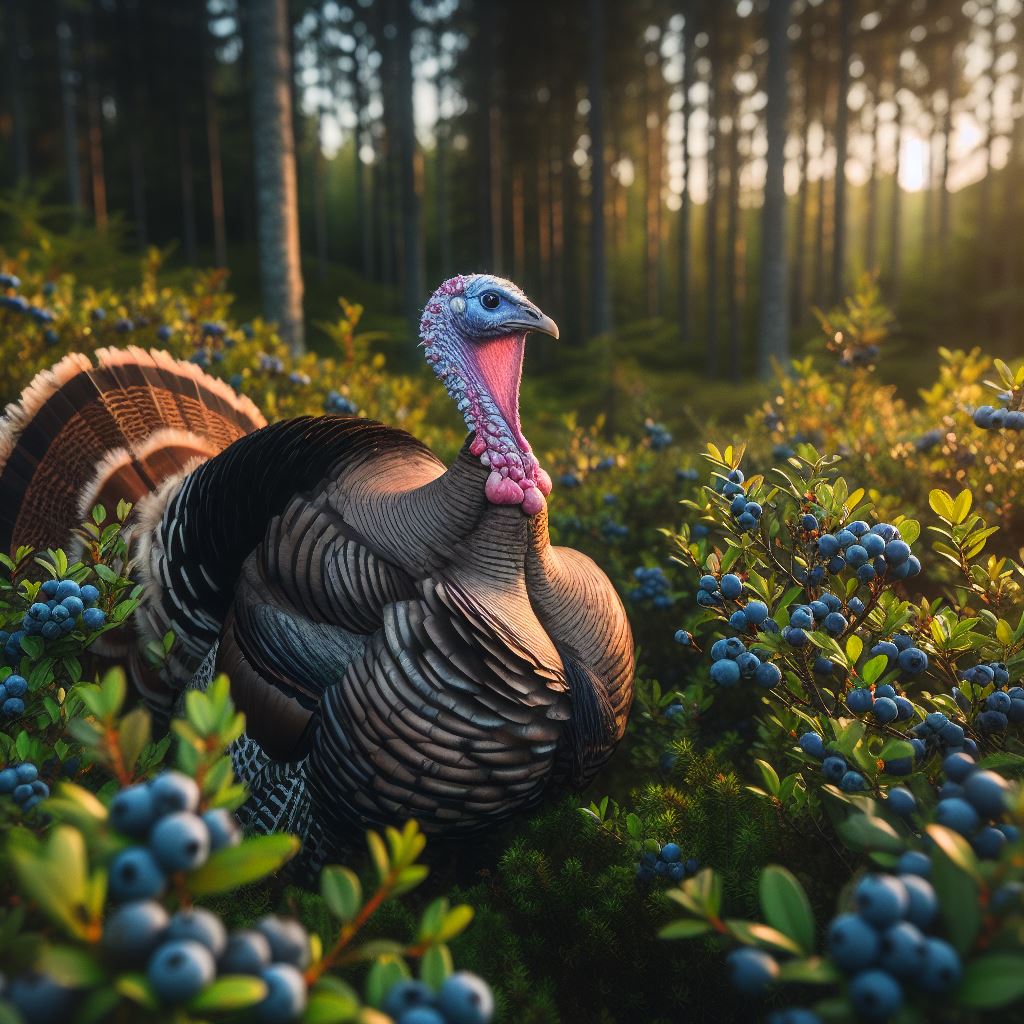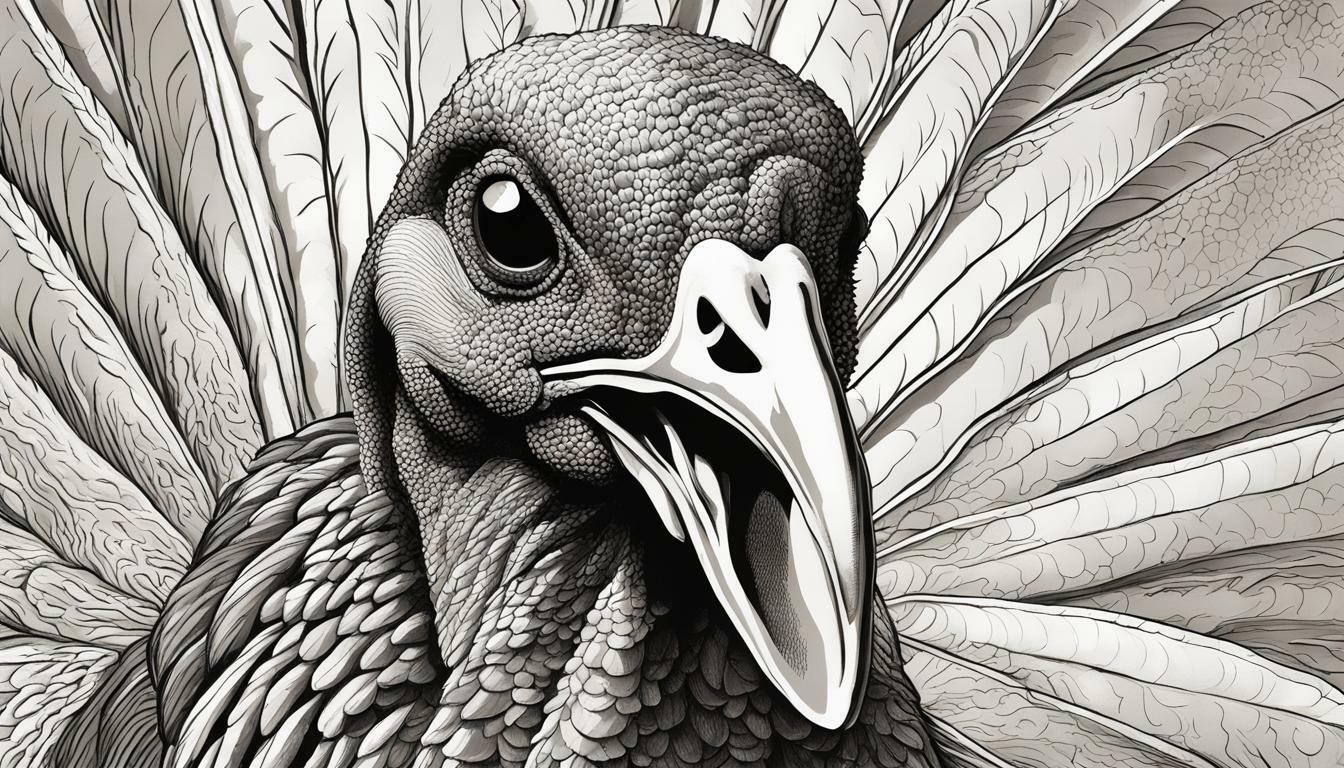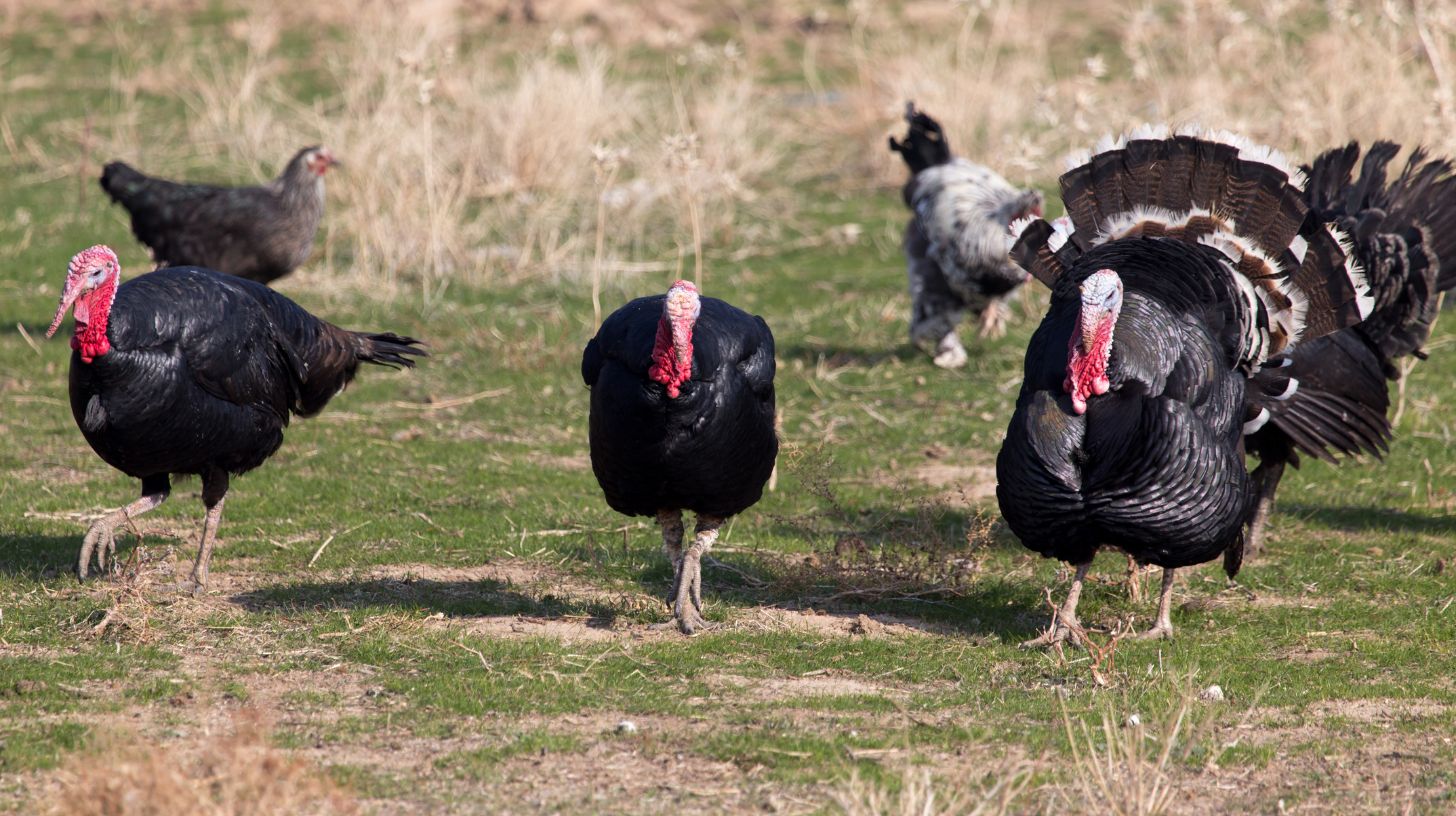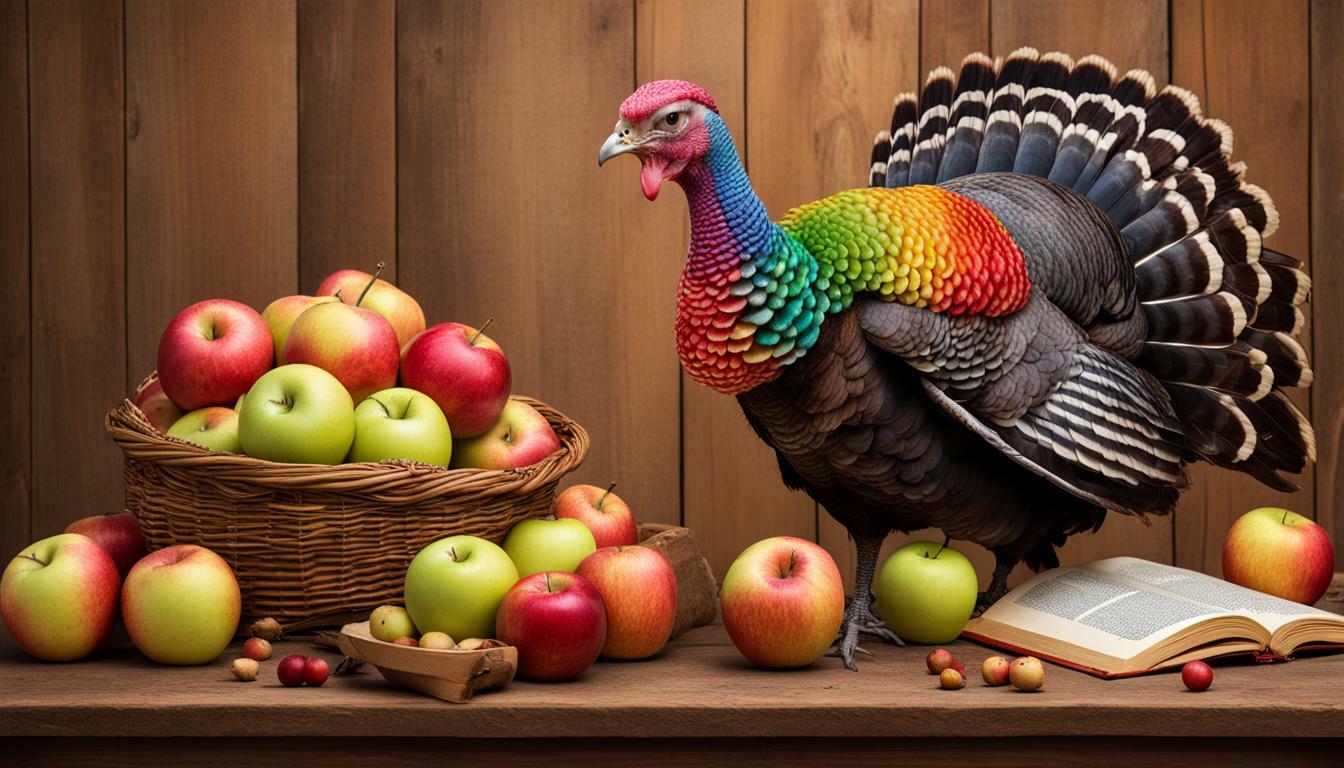Can Turkeys Eat Watermelon? Surprising Answer Revealed!
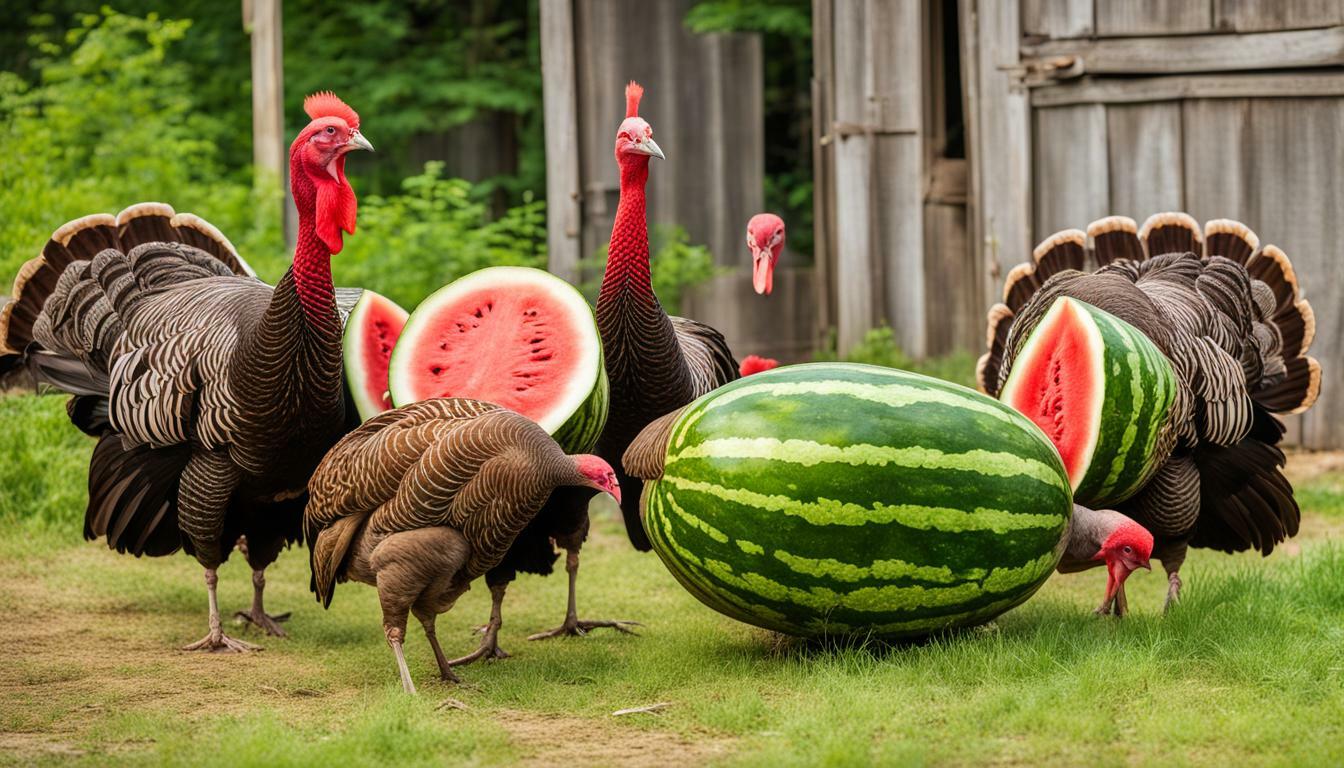
Table of content:
- Is Watermelon Good for Turkeys?
- How Much Watermelon Can Turkeys Eat?
- Do Wild Turkeys Eat Watermelon?
- Can Baby Turkeys Eat Watermelon?
- Are Watermelon Seeds Bad for Turkeys?
- Can I Feed Watermelon Rinds to Turkeys?
- What Fruits and Vegetables Can I Feed My Turkeys?
- What Should I Not Feed Turkeys?
- Do Turkeys Like Watermelon?
- Can I Give My Turkey Watermelon as a Treat?
- Final Thoughts
Can Turkeys Eat Watermelon? Watermelon is a refreshing, juicy fruit that many people enjoy during the warm summer months. If you have turkeys in your backyard flock, you may be wondering if you can share some of this tasty treat with them. The short answer is yes, turkeys can eat watermelon in moderation as part of a balanced diet.
Is Watermelon Good for Turkeys?
Watermelon is safe for turkeys to eat and provides some key vitamins and nutrients. The flesh of the watermelon contains high amounts of vitamin A, vitamin C, and potassium. It also has a high water content, which can help keep your birds hydrated on hot days.
The seeds of the watermelon are a good source of protein and healthy fats. Many birds enjoy cracking open the black watermelon seeds to access the nutritious inner kernel.
In addition to essential vitamins, watermelon has compounds called antioxidants that can boost your turkeys’ immunity and overall health. The red pigment that gives watermelon its color is an antioxidant called lycopene.
So in moderation, watermelon can be a nutritious treat for your flock. Just be aware that too much of any fruit can cause digestive upset, so feed watermelon in limited quantities.
How Much Watermelon Can Turkeys Eat?
When giving your turkeys watermelon, moderation is key. Too much of this sugary fruit can cause diarrhea or other digestive issues.
A good rule of thumb is to limit watermelon treats to once or twice a week. On those days, provide each turkey with no more than 1 cup chopped fresh watermelon or less.
For young poults just starting on solid food, a few small bites of watermelon 2-3 times a week is plenty. Wait until poults are fully feathered at about 6-8 weeks old before offering watermelon.
Monitor your turkeys as they enjoy the melon. Decrease the amount if any birds get loose droppings after eating this fruit. Every flock is different, so watch their reaction to determine the right watermelon serving size.
Do Wild Turkeys Eat Watermelon?
Wild turkeys have diverse diets consisting of greens, seeds, berries, and insects. They forage for a wide variety of seasonal fruits and vegetables.
Though not a mainstay food source, wild turkeys will take advantage of watermelons when they encounter them. These intelligent birds know how to use their strong beaks to break through the outer rind and access the soft, sweet flesh inside.
Watermelons grow on vines close to the ground, making them accessible to wild turkeys roaming fields and forests. The fallen fruit ferments quickly, giving off aromas that attract turkeys and other animals.
Like backyard domestic turkeys, wild ones will eat watermelon flesh and seeds in small quantities as part of a varied diet. This fruit is not a primary food source, but a seasonal snack wild turkeys relish.
Can Baby Turkeys Eat Watermelon?
Baby turkeys, called poults, can start trying watermelon once they transition to eating solid food. For the first week of life, poults need high-protein turkey starter feed. After that, you can gradually introduce fruits and vegetables.
Start when poults are 2-3 weeks old and fully feathered. Slice a small 1⁄2 inch cube of ripe watermelon. Allow each poult to try a bite or two at first to test their reaction.
Increase the amount to 1-2 cubes per poult every 2-3 days. Scatter the bites around their enclosure so the eager poults get some exercise darting for the treats!
Wait until poults are 6-8 weeks old before introducing larger 1⁄4 to 1⁄2 cup servings of chopped melon. Give young birds new foods in small doses to avoid digestive issues.
Withhold melon if droppings become loose after eating it. Some poults may tolerate it better than others. Keep an eye on their reaction as you slowly increase portions.
Are Watermelon Seeds Bad for Turkeys?
Watermelon seeds pose little risk to adult turkeys. In fact, the seeds provide protein, healthy fats, and micronutrients.
The outer shell is quite hard, so the seeds typically pass through a turkey’s digestive system intact. Chewing the seed helps break this tough coating so turkeys can access the nutrient-dense kernel inside.
For young poults, you may want to remove the large black seeds for the first few feedings. Tiny new birds are still developing their digestive systems and may have trouble passing hard seeds.
If you leave seeds in the watermelon, watch for signs of impaction like decreased appetite or lethargy. Poults should be able to handle whole seeds as they get older and their digestive tracts mature.
Overall, watermelon seeds are not dangerous for turkeys as long as you monitor baby birds and remove the seeds if needed. In fact, they provide important nutrients both adult and juvenile turkeys can benefit from.
Can I Feed Watermelon Rinds to Turkeys?
Along with the juicy red flesh, turkeys can safely eat the green rind of the watermelon. In fact, the rind contains even more nutrients than the watermelon flesh.
The rind is an excellent source of vitamin C, vitamin B6, fiber, and antioxidants like lycopene. It does contain small amounts of citrulline and cucurbitacin E that give an unpleasant bitter taste, but not at levels toxic to turkeys.
Chop discarded watermelon rinds into bite-size pieces before feeding. Offer just a few small rinds at first to gauge your flock’s interest. Not all turkeys like the taste.
Try tossing the melon rinds into the enclosure and letting your birds nibble as desired. They may eat more if they get to forage for these refreshing treats.
Rinse rinds and remove any sticky residues before feeding. Keep an eye out for loose droppings, and discontinue use if the rinds seem to cause stomach upset.
What Fruits and Vegetables Can I Feed My Turkeys?
In addition to refreshing watermelon, turkeys enjoy a wide variety of produce. Fruits and veggies add important vitamins, minerals, and phytonutrients to their diet.
Some other good options include:
- Chopped apples or grapes
- Sliced peaches, nectarines, plums, or berries
- Blanched broccoli, zucchini, or green beans
- Cooked sweet potato chunks or pumpkin puree
- Chopped tomato, bell pepper, cucumber, or leafy greens
Introduce new foods slowly and watch for any signs of diarrhea or discomfort. Good treats for training turkeys include corn, peas, chopped leafy greens, grapes, and melon.
Aim to offer a few bites of produce 2-3 times per week. Variety is important, as different fruits and veggies provide unique health benefits. Rotate through the bounty of the season to give your flock’s diet diverse nutrition.
What Should I Not Feed Turkeys?
While turkey diets are quite flexible, there are some foods to avoid feeding your flock. Steer clear of:
- Chocolate or caffeine: Toxic to birds
- Avocado: The toxin persin can harm turkeys
- Dry beans or peas: Raw, these contain lectin that is toxic to poultry
- Moldy or rotting produce: Can cause illness
- Apple seeds: Contain trace amounts of cyanide
- Garlic and onions: Can cause anemia in high amounts
- Potato peels/sprouts: Contain solanine, toxic to turkeys
Also avoid overly processed “people foods” like lunchmeat, chips, or sweets. Stick to healthy, natural treats in strict moderation.
Introduce any new foods slowly and watch for signs of intestinal upset or decreased appetite. Remove any items that seem to disagree with your particular turkeys.
Do Turkeys Like Watermelon?
The reaction to watermelon varies from one turkey to the next. These birds have diverse tastes and preferences, so your flock may love or ignore this fruit.
Be sure to slice or chop the melon into bite-sized pieces before feeding. Turkeys cannot peel the rind themselves like humans. But once you open the watermelon, they can eat the flesh and seeds.
Try offering watermelon on hot summer days when the flock seems overheated. The high water content helps turkeys stay hydrated and cool.
Scatter small melon chunks around the enclosure so the turkeys get some exercise running to each piece. This technique often stimulates their appetite and foraging instincts.
Some birds may eat watermelon right away, while others need more time to try new foods. Patience and persistence are key when introducing novel treats. Don’t give up if they ignore it at first.
Give your turkeys melon 2-3 times per week in summer and watch for increased interest. They may develop a taste for it over time.
Can I Give My Turkey Watermelon as a Treat?
Yes, small amounts of watermelon make an excellent occasional treat for turkeys. Its sweet flavor and juicy texture are hard for them to resist.
When giving watermelon as a treat, good times include:
- Training sessions: Use tiny pieces to reward desired behaviors
- After free-ranging: Help “cool down” overheated birds
- Hot summer days: Provides hydration on sweltering afternoons
- Introduction to poults: Gets young birds used to new foods through positive reinforcement
Start with just a few bites and work up slowly to the 1 cup serving maximum. Remove rinds and large seeds if feeding babies.
Reserve watermelon for once or twice weekly to keep it a special treat. Offer other fruits and veggies in between for variety. Your turkeys will look forward to their refreshing melon snack!
Final Thoughts
Fresh watermelon makes a tasty, nutritious occasional treat for backyard turkeys. It provides hydration and important vitamins turkeys need. Limit treats to 1 cup per bird no more than twice a week. Remove large seeds and rinds from baby poults’ servings. Overall watermelon is a safe, enjoyable food turkeys go crazy for in summer! Experiment to see if your flock enjoys this juicy, sweet fruit.
Welcome. I’m Adreena Shanum, the proud owner of this website, and I am incredibly passionate about animals, especially poultry. I founded adreenapets.com as a labor of love, stemming from my desire to share my knowledge and experiences with poultry enthusiasts worldwide.

